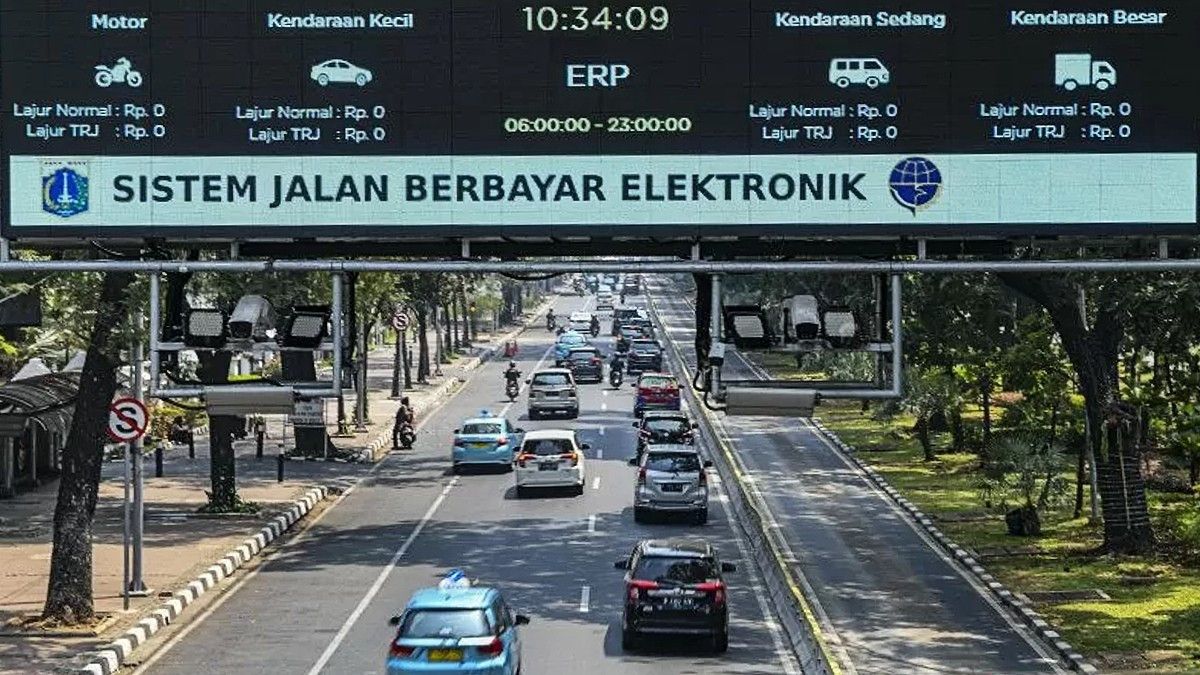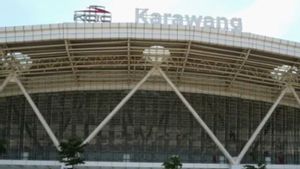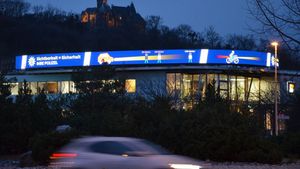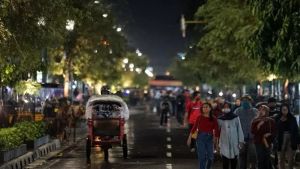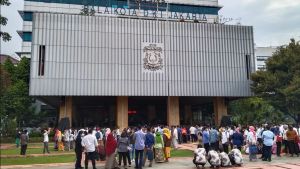JAKARTA - Member of the NasDem faction of the DKI Jakarta DPRD Hasan Basri suggested that the discussion of the draft regional regulation (RAPERda) which regulates the application of paid roads or electronic road pricing (ERP) in Jakarta be postponed.
Although the Raperda on Electronic Traffic Control (PL2SE) has been included in the 2023 regional regulation formation program (propemperda), Hasan asked for the discussion to be postponed until the 2024 election was over. Because, according to him, the ERP plan has drawn public rejection.
"We will postpone what has been rejected by the community. Later, next year or after the election will be discussed," Hasan told reporters, Tuesday, January 17.
Moreover, Hasan continued, the Regional Regulation Formation Agency (Bapemperda) of the DKI Jakarta DPRD has dozens of other regional regulations which are also included in the completion target this year.
Hasan explained further about the reason his party rejected the ERP implementation. Hasan assessed that it is not appropriate for people to have to spend money to cross public roads. Considering that the road was built using money which also came from public taxes.
"If it's a toll road, it's built by the private sector. Toll roads take payments, so it's only natural because the private sector has mined capital there. This is 25 roads in Jakarta, this is using people's money to build it. Why do they have to pay when passing there?" he explained.
Moreover, according to him, with the ERP system, congestion in Jakarta will still exist. The vehicles that usually cross the 25 segments, he continued, will only move to other roads.
"It actually moves traffic jams from one place to another. For example, it's odd-even. When it comes to hours, many vehicles pass through alternative routes first," Hasan said.
For information, the draft Raperda on Traffic Control Electronically that regulates paid roads has been prepared. The provincial government and the DKI DPRD have also conducted initial discussions regarding the contents in the draft, but the discussion of articles per article has not been carried out.
Seen in the draft Raperda, there are 25 roads that will be subject to the implementation of ERP, namely Jalan Pintu Besar Selatan, Jalan Gajah Mada, Jalan Hayam Wuruk, Jalan Majapahit, Jalan Medan Merdeka Barat, Jalan MH Thamrin; Jalan Jenderal Sudirman, Jalan Sisingamangaraja, Jalan Panglima Polim, Jalan Fatmawati (Simpang Jalan Ketimun 1-Simpang Jalan TB Simatupang).
Then, Jalan Suryopranoto, Jalan Balikpapan, Jalan Kyai Caringin, Jalan Tomang Raya, Jalan Jenderal S Parman (Jalan Tomang Raya-Simpang Jalan Gatot Subroto), Jalan Gatot Subroto, Jalan MT Haryono, Jalan DI Panjaitan, Jalan Jenderal A Yani (East Bekasi Raya Intersection-Perintis Kemerdekaan Intersection), Jalan Pramuka, Jalan Salemba Raya, Jalan Kramat Raya, Jalan Pasar Senen, Jalan Gunung Sahari; and, Jalan HR Rasuna Said.
Then, electronic traffic control in traffic control areas applies electronically every day from 05.00 WIB-22.00 WIB.
The vehicles charged with ERP rates are road users who use motorized vehicles and electric vehicles. There are a number of vehicles that are excluded in the application of paid road systems, including electric bicycles, yellow plate public motorized vehicles, government agency and TNI/Polri operational service vehicles except/in addition to black plates, foreign diplomatic corps vehicles, ambulance vehicles, corpse vehicles, and fire fighting vehicles.
The amount of tariff for traffic control services electronically and its adjustment is determined by the Governor's Regulation after obtaining approval from the DKI Jakarta DPRD. Meanwhile, the DKI Transportation Agency proposes that ERP be subject to a tariff of IDR 5,000 to IDR 19,000.
The English, Chinese, Japanese, Arabic, and French versions are automatically generated by the AI. So there may still be inaccuracies in translating, please always see Indonesian as our main language. (system supported by DigitalSiber.id)
